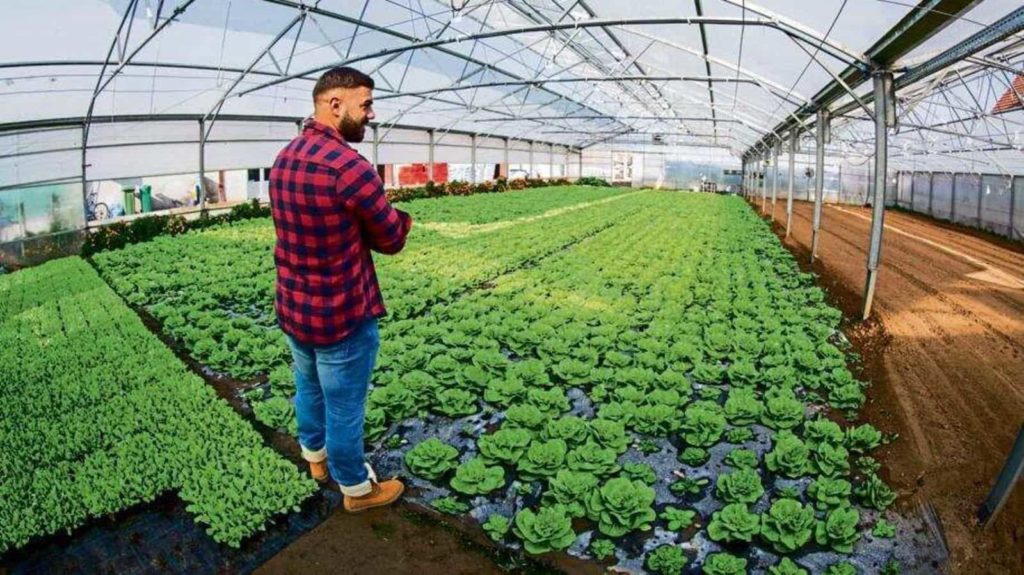
Photo courtesy of Mint
Hydroponic farms, technically called controlled environmental agriculture, establish indoor growing conditions to create customizable flavors and textures in produce by using technology; this technology can include data-learning algorithmics, data analytics, and proprietary software systems. Able to grow precise crops from anywhere in the world, these farms are changing the world of agriculture.
Two major examples of this new trend include AppHarvest and Bowery. AppHarvest is a start-up located in Morehead, Kentucky. Backed by celebrities such as Martha Stewart, the farm cultivates almost 3 million pounds of tomatoes without a single drop of soil. It has plans to open 11 more farms in Appalachia in the next 4 years. Bowery is now the biggest vertical-farming company in the country located in Kearny, New Jersey. Also celebrity backed, Bowery’s investors include Justin Timberlake, Natalie Portman, José Andrés, and Tom Colicchio. Founder Irving Fain has shared that his farms are 100 times as productive as traditional farms, and use 95% less water. Because of his farm’s vertical structure, it can grow 300 times as much food on a single acre, which can be located next to urban centers; the result is that food remains fresher and more nutritional as it does not spend multiple days traveling to its destination. Additionally, the technology and buildings used exempt the crop from pesticides, thereby protecting them from bacterial contamination.
Aside from their technological ingenuity, these farms are necessary as climate change threatens the country’s traditional crop supply with record heat waves and droughts. Additionally, the pandemic illuminated the fragility of the supply chain, which can be bypassed by the construction of vertical farms in specific localities. As an industry, hydroponic farms are challenging large, industrial firms by decreasing pesticide use and increasing new and more diverse crops; this is important because they do not view smaller farms who use natural growing techniques as competition, although these smaller farms are feeling the heat. Although the 2,300 hydroponic farms located in the U.S. only constitute a tiny fraction of the country’s $5.2 billion market, their yearly investments doubled in 2020 to $929 million and are receiving attention from major grocery chains and public figures as well.
There is, of course, major opposition.
First and foremost, the lack of soil is being replaced with nutrient-rich water, however this fundamentally opposes our historical conceptions of organic farming. Nutrients and taste have always derived from the soil but, without its use, the effects on taste and health are not concretely known. Many have raised concerns that, although the nutritional value of hydroponic farming continues to improve, we will not know the long-term impacts of this technique for a considerable amount of time; as such, it strikes many critics as a risky experiment on our health. Others have focused on how nutrient-rich water will never be able to achieve the same taste and nutritional value as soil, nor will it provide the same degree of environmental advantage. Lastly, others have focused on the cultural repercussions of such farming. Diets have always been built around what crops grow best next to each other. However, hydroponic farming separates all crops, thereby divorcing food from nature in an entirely unconventional manner.
As the U.S. imports more and more crops, hydroponic farming offers a new and effective way to save U.S. farmers and mix modern technology with an age-old practice.
Founded by attorneys Andreas Koutsoudakis and Michael Iakovou, KI Legal focuses on guiding companies and businesses throughout the entire legal spectrum as it relates to their business including day-to-day operations and compliance, litigation and transactional matters.
Connect with Andreas Koutsoudakis on LinkedIn.
Connect with Michael Iakovou on LinkedIn.
This information is the most up to date news available as of the date posted. Please be advised that any information posted on the KI Legal Blog or Social Channels is being supplied for informational purposes only and is subject to change at any time. For more information, and clarity surrounding your individual organization or current situation, contact a member of the KI Legal team, or fill out a new client intake form.
The post Technology Replaces Soil in New Farming Endeavors appeared first on KI Legal.
